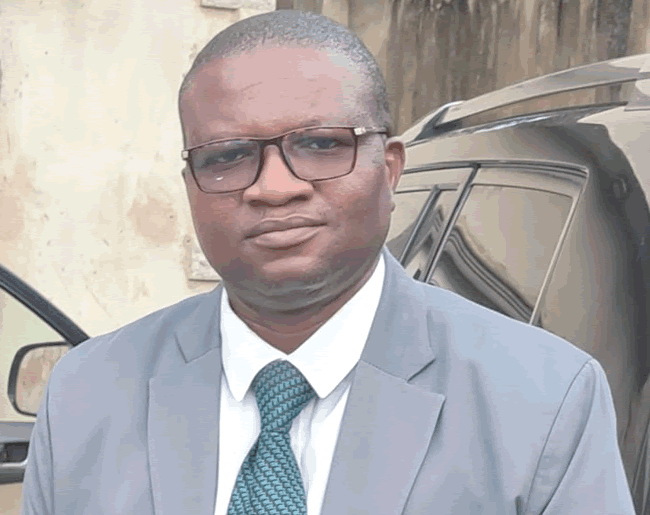Adejumoke Ipadeola is a businesswoman, a technology entrepreneur, and a mentor. She is the founder of Vergold Digital Hub and the defunct Nigerian e-commerce platform ANQR. In this interview by KINGSLEY ALUMONA, she speaks about her work in tech, women in tech, among other issues.
You started your career in banking, but in recent years, you have been active in tech. What motivated this change in career and passion for tech?
I like to think of myself as a woman in business. Tech is a large part of modern business in this century. My foray into tech began from the point of working with other businesses and seeing aspects of their business operations which could be aided by digital adoption. In my previous employment, I gained experience in business process management and automation. So, this was quite easily applied to my clients to whom I was recommending digital adoption.
You have an education degree and an MBA. No tech degrees. How was it easy for you to transition into tech?
As stated above, I am simply a businesswoman. You are right, I do not have a tech degree, although I have taken at least eight short courses in tech. Apart from this, what is aiding my foray into tech is a tech team which I have built, as well as key partnerships with other tech companies.
Within seven years, you have founded three tech companies. For each and any tech solutions you found or created, how does the creative and innovative process begin and complete for you?
Like everything, it begins with an idea. I like to think that I am good at ideating and executing. So, when I have an idea, or someone on my team has a brilliant idea, my role in that process is that of a product manager, putting together the business requirement document, features, and rollout timelines.
One of your tech companies is the e-commerce platform ANQR. Is ANQR like Amazon, eBay, Konga, and the like? What is unique about it, what kind of things could be bought from it, and why should Nigerians be interested in it?
ANQR was a platform which aggregated the local fashion industry. We worked with local manufacturers of clothing, bags, wigs, hoes, other leatherwork, and light furniture items. At its height, ANQR had more than 170 sellers and about 10,000 buyers registered. We had tech integrations with the tech stack of Kwik, GIG, and DHL Express. We also had a bespoke quality control application used in our fulfilment centres.
Our intention in creating ANQR was to provide a platform dedicated only to made-in-Nigeria products, as opposed to other e-commerce platforms which showcased Nigerian products in addition to imported ones.
Unfortunately, we closed down ANQR only in June this year due to a resource optimisation decision we took.
Your two other tech companies are Vergold Digital Hub and Qualitech-Vibrand University. How do these two companies differ? And how do they impact the Nigerian ecosystem?
Qualitech-Vibrand University is a proposed technology and research University. My initial work with the founder was in the area of preparing key documentation. There, it became apparent that we shared a clear vision and I was invited as a co-founder. Unfortunately, this journey was a short one as I then decided to focus on Vergold. It was at this point that Vergold was making the transition from an SME consultancy into a tech company.
In August, Vergold was one of the facilitators of the Innovation Grant Fund (IGF)/IDEAS Project sponsored by the Federal Ministry of Education and the World Bank. What were the specific roles Vergold played in the project and how did it impact the beneficiaries?
This project is ongoing; our contract with the Federal Ministry of Education runs from September 2022 to April 2025. It is being implemented by the consortium of Vergold Nig Ltd and Cadlinks Systems. Vergold is the leader of this consortium. We had 724 beneficiaries against our target of 700; these were young Nigerians between the ages of 18-40, and our focus was on inclusion for women and persons living with disabilities.
Under this project, we offered free digital skills training in front-end development, back-end development and product (UI/UX) design. After training, our trainees gained certificates compliant with the National Skills Quotient Framework (NSQF) and also were put through mentorship and internship processes. We have recently rounded up internships and are working on job placements for our graduates.
Nigerians seem to like training and projects, yet many of the beneficiaries of these trainings hardly produce any tangible solutions with the skills learnt from these trainings. Is the problem a lack of funds, inadequate training, or lack of mentors/mentorship? What is your take on this?
Your assertion about our affinity for training is correct. You are also right in observing that all these trainings have not translated into the solutions for our myriads of societal problems. From our own experience, I would say that mentorship and long-term guidance play a key role in helping trainees apply their knowledge in practical ways. One lesson they have to learn is that digital entrepreneurship is not a get-rich-quick scheme. Yes, it is a rewarding path, however, it also requires excellence and commitment.
Therefore, apart from technical skills gained in training, young people need to subject themselves to mentorship ─ a less-structured form of training ─ where they apply their skills to providing solutions to real-life problems, and all of the other business knowledge and corporate governance considerations for managing success as a digital entrepreneur. In our ongoing project, we have been able to identify graduates who have demonstrated that flair for digital entrepreneurship. So, we are supporting them with business training, under yet another structured programme titled, “Startup School for New Tech Founders”.
Nigerian tech experts and entrepreneurs are mostly interested in fintech and education solutions and other related solutions. Hardly do we hear about tech solutions in healthcare, security, agriculture, engineering, and the like built by Nigerians. This is not good for the economy and the tech ecosystem of the country. What do you think could be done to increase the production of solutions from these other seemingly neglected tech areas?
Solutions follow passion. People build what they are interested in or what they think is easy. Fintech and education seem rather straightforward as compared with the other sectors. We also have to acknowledge that fintech does have the glitz and glamour which may be deemed lacking in other sectors, hence the appeal.
In our mentorship of young people, we tell them to come up with as many ideas as possible, from different sectors. To be able to come up with an idea, you need to have had some degree of exposure to the issues or new developments in that sector. You know, innovation occurs at the intersection of one’s cognitive processes, stimuli from the environment, and one’s personal experiences. Therefore, the influences young people are exposed to, the personalities they follow, and what they read online are critical factors.
I encourage youths to follow tech leaders in various fields, and also subscribe to publications which give an overview of what other people are building. This way, they will have many sources of stimulation to spark insights and inventions across the board.
When it comes to tech and the digital economy in Nigeria, men are the major players and decision-makers. What are female players doing to increase the number of women in the sector and to take their rightful place on the table?
I think that the best way female players can motivate other women and young girls is to reach their own highest potential, and that is my driving force. As a caveat, reaching one’s highest potential is subjective, so what this looks like will vary from one person to the next.
Many of the women I know in this space are doing one thing or the other to give back to society, and to lend a helping hand to other women who are just starting. There are mentorship fora, speaking engagements, and online groups led by women, which are wholly dedicated to supporting other women who are just starting in the tech field.
Your profile says you offer mentorship and pro bono seminars to young people. How do you do this? What kind of future do you see for your young mentees in the Nigerian tech industry?
My company’s ongoing project has put me in close proximity with young people from all works of life, and it has become easier to make an impact through mentoring. Before this project, I usually participated in youth-focused skills acquisition programmes and events. This is a conscious decision borne out of my desire to share what I know with those who are willing and have questions I can answer.
Looking into the future, I see close collaboration and an unlocking of our vast human assets as a nation. Tech is the future, and with the large scale of digital skills acquisition that is ongoing in Nigeria now, that future looks very bright.
Your profile says you are a voracious reader and you like to write too. What are your three favourite books and why?
My three favourite books in no particular order are: 1. ‘Money-Master the Game: 7 Steps to Financial Freedom’ by Anthony Robbins; 2. ‘Atlas Shrugged’ by Ayn Rand; and 3. ‘Sapiens’ by Yuval Noah Harari.
More than any other books I have read, these three books gave me an expanded view of what is and what could be, and they have left an indelible imprint in my mind.
What advice do you have for young girls hoping to start a life and career in tech?
It is a most rewarding path. I encourage every young person, male or female, to pursue their dreams.
READ ALSO: Nigeria’s hunger crisis deepens with 33 million at risk

 1 hour ago
5
1 hour ago
5






